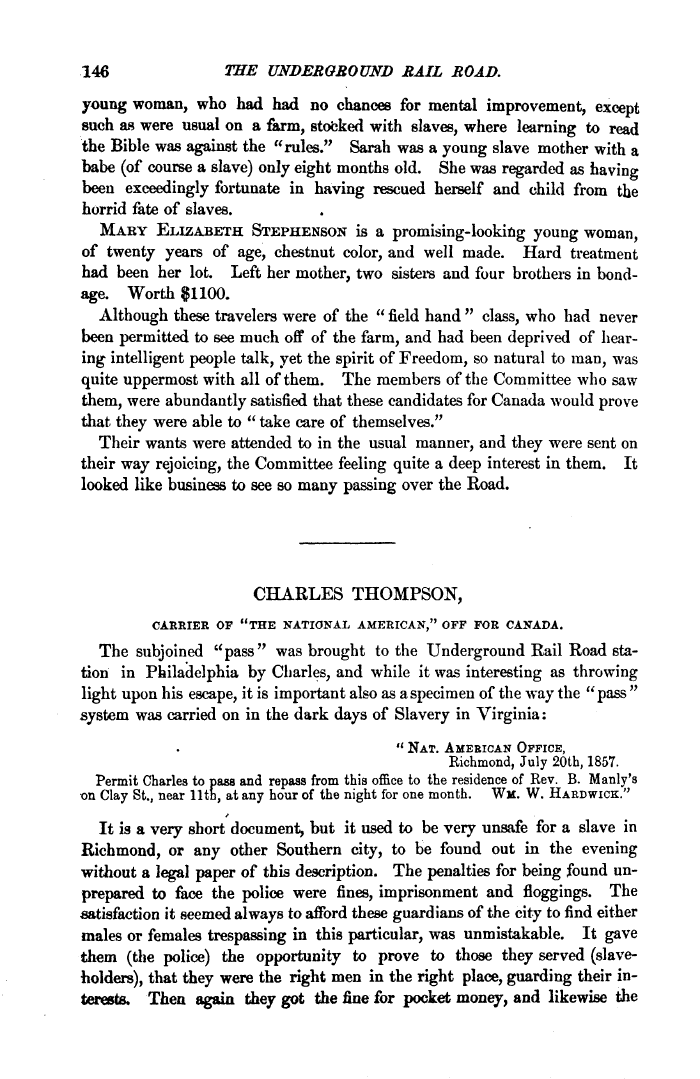 |
||||
 |
||||
| 146 THE UNDERGROUND RAIL ROAD. young woman, who had had no chances for mental improvement, except such as were usual on a farm, stobked with slaves, where learning to read the Bible was against the "rules." Sarah was a young slave mother with a babe (of course a slave) only eight months old. She was regarded as having been exceedingly fortunate in having rescued herself and child from the horrid fate of slaves. MABY ELIZABETH STEPHENSON is a promising-lookitig young woman, of twenty years of age, chestnut color, and well made. Hard treatment had been her lot. Left her mother, two sisters and four brothers in bondage. Worth $1100. Although these travelers were of the " field hand " class, who had never been permitted to see much off of the farm, and had been deprived of hearing intelligent people talk, yet the spirit of Freedom, so natural to man, was quite uppermost with all of them. The members of the Committee who saw them, were abundantly satisfied that these candidates for Canada would prove that they were able to " take care of themselves." Their wants were attended to in the usual manner, and they were sent on their way rejoicing, the Committee feeling quite a deep interest in them. It looked like business to see so many passing over the Road. CHARLES THOMPSON, CARRIER OF "THE NATIONAL AMEKICAN," OFF FOR CANADA. The subjoined "pass" was brought to the Underground Rail Road station in Philadelphia by Charles, and while it was interesting as throwing light upon his escape, it is important also as a specimen of the way the ''pass " system was carried on in the dark days of Slavery in Virginia: " NAT. AMERICAN OFFICE, Richmond, July 20th, 1857. Permit Charles to pass and repass from this office to the residence of Rev. B. Manly's xm Clay St., near lltn, at any hour of the night for one month. WM. W. HAKDWICK." / It is a very short document, but it used to be very unsafe for a slave in Richmond, or any other Southern city, to be found out in the evening without a legal paper of this description. The peaalties for being found unprepared to face the police were fines, imprisonment and floggings. The satisfaction it seemed always to afford these guardians of the city to find either males or females trespassing in this particular, was unmistakable. It gave them (the police) the opportunity to prove to those they served (slaveholders), that they were the right men in the right place, guarding their interests. Then again they got the fine for pocket money, and likewise the |